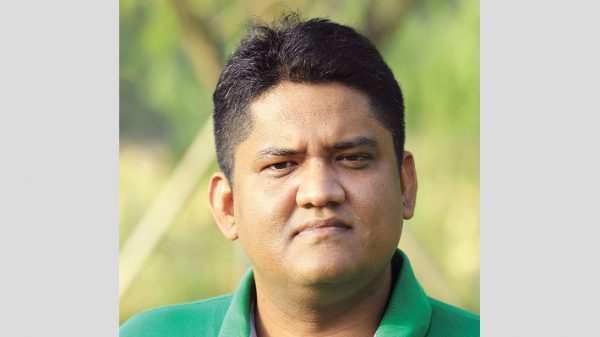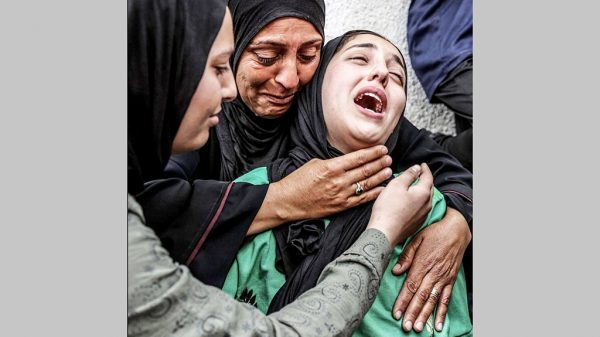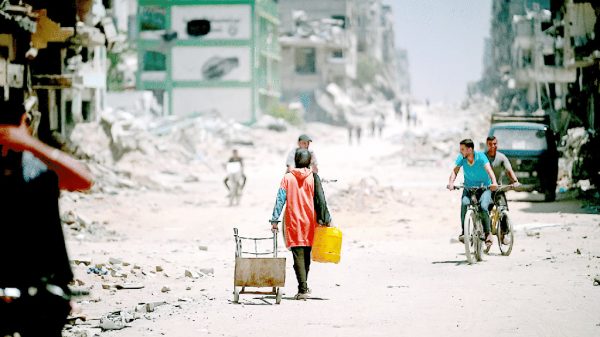‘Mujib Year’: Countdown to Hope

Bangladesh has created a milestone by gathering together and launching the countdown on January 10 to start the ‘Mujib Year’ marking the birth centenary of Father of the Nation Bangabandhu Sheikh Mujibur Rahman, coinciding with his 1972 return home from Pakistan captivity. The yearlong celebrations, Mujib Barsha or Mujib Year, will start at the end of the countdown on Mar 17, the 100th birth anniversary of the nation’s independence architect. The government is giving much focus on its efforts to successfully hold a series of programmes marking the ‘Mujib Year’ at home and abroad keeping global focus on Rohingya issue unchanged for their early repatriation. Bangladesh has received a long list of global leaders to become part of a series of programmes during the ‘Mujib Year’.
Bangabandhu is not only a name; he is a history also. He is not only the Father of the Nation but also the crownless emperor in the minds of people. Bangabandhu provided a rabble rousing charismatic leadership. He headed the Awami League, served as the first President of Bangladesh and later became its Prime Minister. It has been observed that ‘no man in the entire history of modern world except Mao for different reasons has hypnotised his people as Mujib did’. Bangabandhu not only achieved liberation for the people of Bangladesh but also took many programmes for the freedom of countrymen and infrastructural development of the country. That’s why Cuba’s revolutionary leader Fidel Castro once compared Bangabandhu Sheikh Mujibur Rahman with the Himalayas.
Bangabandhu chose his struggling life for and dedicated his life to bringing freedom of the people. He earned independence for the countrymen, presented a state to them and gave scope for their self-identity. Bangabandhu had wanted to give beautiful life to the people after bringing them freedom. It is our bad luck that he could not leave by building the country. Bangladesh could have attained its desired goals in all the socio-economic fields within 10 years of the country’s independence had the Father of the Nation Bangabandhu Sheikh Mujibur Rahman remained alive and carried on with his economic farsightedness. The Father of the Nation laid the foundation of the country’s development in just three and a half years of independence through his courageous steps for rebuilding a war-ravaged country.
Bangabandhu envisioned equal rights for all. He took an economic policy immediately after the independence, envisioning equal rights for all. The new government, under the leadership of Bangabandhu, outlined the fiscal policy, prioritising relief and rehabilitation so the war affected people, especially the rural poor get necessary support to start their life anew. Bangabandhu within just a short period of time from the independence had constituted a very strong and farsighted five-member Planning Commission. Considering the future development journey of a war-hit country, Bangabandhu had been able to award the country’s first five-year plan before the nation alongside undertaking various reform initiatives in different sectors to reenergise the economy since the state coffer was almost zero after the War of Liberation.
Bangabandhu had reenergized the country’s agriculture sector through undertaking various initiatives. It was only Bangabandhu who had laid the foundation of the country’s huge successes in agriculture. Bangabandhu always worked for the poor. Even when he was a little child, he shared his father’s crops with his poor neighbours. Before the election in 1970, Bangabandhu declared that farmers would not require paying tax for owning 25 bigha lands, but none would be allowed to own more than 100 bighas of land. Even the key issue of the six-point movement was to ensure economic rights since the Pakistan government effectively detached the people of East Pakistan from all sorts of economic activities.
During that tenure of only three and a half years of Bangabandhu had made hefty allocations in the agriculture sector, transformed a jute research laboratory into an institute side by side established and reformed the Bangladesh Institute of Nuclear Agriculture, Bangladesh Agricultural Development Corporation (BADC), Bangladesh Agricultural Research Institute (BARI), Bangladesh Rice Research Institute (BRRI), Cotton Development Board.
In the early dawn of 15thAugust, 1975 the founding father of the People’s Republic of Bangladesh, Bangabandhu Sheikh Mujibur Rahman, and the members of his family were killed by a group of wayward army officials. Martial law was imposed in the country and an indemnity ordinance was passed on November 8, 1975 by the then parliament. By incorporating the notorious ordinance in the Fifth Amendment to the Constitution of the People’s Republic of Bangladesh, the self-confessed killers of Bangabandhu were given immunity. This was a manipulation of the Constitution. No subsequent government repealed the said ordinance but played with the Constitution until the indemnity ordinance was repealed in 1996.
Bangabandhu was a man of huge self-esteem and had an abundance of confidence. But he was polite in dealing with the leaders of other nations and yet he remained keenly aware of what he needed to tell them about his people and their travails. For example, in Delhi, on his way back home to Bangladesh, he rather surprised Indian Prime Minister Indira Gandhi by asking her when she would withdraw her soldiers from Bangladesh. By 17th March, 1972, Bangabandhu’s birthday, India began taking its soldiers back home.
Once at a press conference, renowned journalist David Frost asked Bangabandhu, ‘Mr. Prime Minister, what is your qualification?’ Bangabandhu replied with a smile, ‘I love my people’. David then asked, ‘What is your disqualification?’ Putting off his spectacles and wiping his eyes, he answered, ‘I love them too much’. Bangabandhu might have been killed physically but his soul is immortal. He lives eternally. As long as this country exists, he will exist immortally. Bangabandhu dedicated his whole life for the welfare of the people. Bangabandhu is the symbol of freedom and struggle for the entire world.
Following liberation in 1971, the Awami League was in power for around three and a half years before the assassination of Bangabandhu, five years from 1996 to 2001 under the leadership of Sheikh Hasina, and since the 2008 general elections to date. The Awami League has promised to put Bangladesh on a ‘highway to development’ and to incorporate younger generations into positions of leadership in its manifesto for the 11th parliamentary elections. In 2008, the Awami League’s manifesto was titled ‘A Charter for Change’. In 2014 it was ‘Bangladesh Moves Forward’. Its manifesto for the 11th parliamentary election is ‘Bangladesh on Path to Progress and Prosperity’. Awami League formed government for a third consecutive term in 2019. This term ensuring good governance is the key challenge for the government. The country is moving forward. Development activities are in progress and standard of living is also improving. But corruption, drug and militancy grasped the whole society like deadly diseases as the military dictators ruled the country for a long time. Not enough has been done in the past; there needs to be a step-change to tackle these problems more effectively. These are somber reminders to all of us that the struggle for independence is still unfinished business. Government and citizens should work effectively together towards building a prosperous Sonar Bangla as dreamt by the father of the Nation.
Bappy Rahman is a Chinese Government PhD Fellow and
Assistant Professor, Department of Public Administration,
Jagannath University, Dhaka.




























Leave a Reply